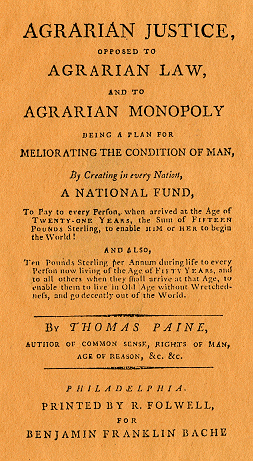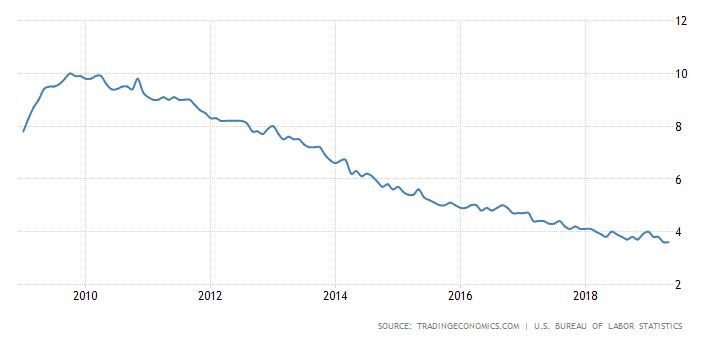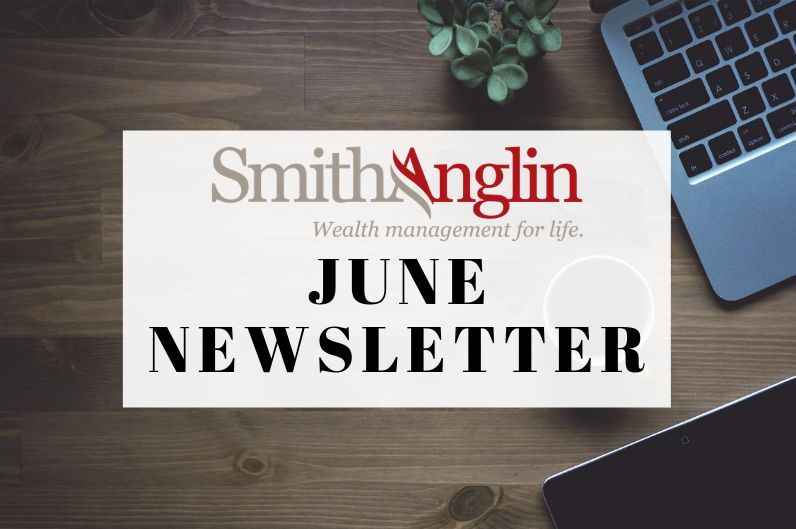Let’s be honest. The field of Democratic presidential hopefuls resembles a scattershot pattern of personal brands and single-issue campaigns. Even if that weren’t demonstrably true, we could guard against charges of partisanship by conceding the same could be said of the Republican field four years ago.
But there’s one contender with one message that’s worth discussion regardless of which side of the aisle you sit on. Maybe none of us will even remember who Andrew Yang was a year from now, but his single issue, universal basic income (UBI), is a compelling topic.
UBI draws criticism – for different reasons – from both left and right, which suggests that, even if we as a nation don’t pursue it, we should at least say we talked about it.
For the record, this is not an endorsement. But a system of unconditional, periodic cash payments from the government to each citizen is an idea – though it might offend all our sensibilities at first hearing – that is not necessarily socialistic. And it isn’t necessarily a transfer of wealth from the deserving to the undeserving. Nor should it be filed under the ill-defined word from the world of politics: “un-American.” Here’s why.
A little history
Universal Basic Income programs are not a new concept. It dates back to at least 1516, when Sir Thomas More noted in Utopia that a wise ruler “would rather govern rich men than be rich himself; since for one man to abound in wealth and pleasure when all about him are mourning and groaning, is to be a [jailer] and not a king.” He thus recommended that the ruler “distribute all those extraordinary accessions that increase treasure beyond the due pitch, [because] it makes him less disposed to oppress his subjects.”
Nor is UBI a concept foreign to American values. Thomas Paine, the renowned pamphleteer of the American Revolution, wrote in his essay Agrarian Justice, “the condition of every person born into the world, after a state of civilization commences, ought not to be worse than if he had been born before that period.”

Credit: Social Security Administration
What has not changed, surprisingly, is the perceived reason for the need: a new technology that disrupts labor markets. Although history would argue the point, in the moment it seems as if technological advancement reduces the need for work and, subsequently, the ability for workers to provide for themselves and their families. Today’s culprits are artificial intelligence and robotics, but Sir Thomas More observed that shepherding was less labor-intensive than farming, as Paine observed that farming itself was less labor-intensive than hunting and gathering. At the very least, these paradigm shifts tend to favor the more highly skilled at the expense of those at the subsistence level. Thus, even if technological advancement does not strictly speaking reduce the need for labor, it does disrupt the lives of those at the margins, which would argue in favor of UBI.
“In advocating the case of the persons thus dispossessed,” Paine wrote, “it is a right, and not a charity, that I am pleading for.”
The UBI model under consideration in this national election is inspired by Alaska’s Permanent Fund Dividend, a cash distribution for the mineral rights which were ceded by the state to oil drilling companies. Today, it could be argued that all Americans are entitled to compensation for their unique contribution to the so-called “new economy”: their personal data.
“Data is the new oil” has become a term as overused as it is inaccurate – oil is fungible while data is unique to the individual – but it does hold true this far: Maybe it ought not simply belong to whoever found it. Another cliché about how data is shared online is much more factual: “If the product is free, then you’re the product.”
So your monthly UBI payment can be looked at a couple ways. It could be the money you have coming to you from Google, Facebook and Amazon for all the data you have handed over to them, and the government is just acting as the collection agent. But even if you are totally off the grid and don’t have anything in your wallet but cash, a driver’s license and a library card, the case can still be made that you’re entitled to the money. That’s because these payments could also be viewed as dividends. You worked hard over the course of your career – as did your parents and grandparents – to move the economy from a point where ice had to be delivered door-to-door to a point where your fridge can actually place your weekly grocery order. You paid for this new economy, so maybe you are entitled to a dividend from those profiting the most from it.
Indirect Benefits
Again, we are not advocating for UBI, just opening up the discussion. The whole concept is predicated on a couple iffy assumptions.
The first is that UBI payments would not replace your paycheck. It is the equivalent of a side gig or renting out your spare room on Airbnb. Everyone still has to find a way to support themselves. Of course, everyone always wants more, so it’s difficult to tell how UBI expectations might change over time.
But the more economically inelegant – but possibly true – assumption is that inflation won’t be affected. Classically, an increase in wages ought to lead to an increase in prices that will erode those raises over time. Empirically, though, that has not held up to recent scrutiny. Over the past decade, the U.S. unemployment rate dropped from 10% to 3.8%, while labor participation still managed to inch up despite Baby Boomer retirements. Still, with all these Americans returning to the workplace inflation barely budged, and average hourly earnings continue to outpace increases in the consumer price index.

But given all that, is UBI socialist deep-state intrusion or capitalist rent-seeking?
It can be argued that UBI would actually foster a wave of entrepreneurship. Proponents suggest that some individuals would use their UBI dividend to start a business, an aspiration that many would not pursue in the absence of a safety net to aid them should they or a family member become ill or suffer some other misfortune. Others would temporarily leave their jobs, returning to school for academic advancement or vocational training.
But not everyone is driven to improve their lot in life or are, frankly, capable of handling much more than they are handling now. Those on the lowest rung of the earned-income ladder are faced daily with the choice, “Am I better off going to the minimum-wage job, or am I better off collecting government-provided benefits?” The mere act of taking a job often leads to a loss of buying power for food or medical care. UBI could pave the way to employment without fear of losing essential benefits. To some degree, UBI might replace these government assistance programs. By removing needs testing and applying the dividend to all eligible citizens, bureaucracy would be greatly reduced, so groceries and medicine could end up in household cabinets much more expeditiously.
For those on the next rung up, UBI would provide leverage for workers to bargain with employers. If a company’s wages are below-market or working conditions are poor, individuals receiving a UBI dividend would have more ability to reject lowball offers or to leave an abusive or hazardous workplace. While this would lead to additional burdens on some employers, they might discover the benefits of having a healthy, educated workforce who no longer have a pressing incentive to leave for a better job.
Even so …
It’s also important to factor in the indirect cost of deadweight loss – the economic inefficiency caused by such disruptions as government subsidies. UBI might or might not take the form of an actual subsidy but, regardless, that would be its economic effect. Still, if your city or state ever offered billions of dollars in tax incentives to locate a corporate headquarters or a sports venue there, then it already crossed that moral hazard line.
So let’s go back to the question, is UBI socialist or capitalist? The answer is, “yes.” There’s no pure-play economy on either side of that line, nor are those the only two options. The best way to understand it better, and to decide what you do or do not agree with, is to ignore labels and go straight to the ideas.



